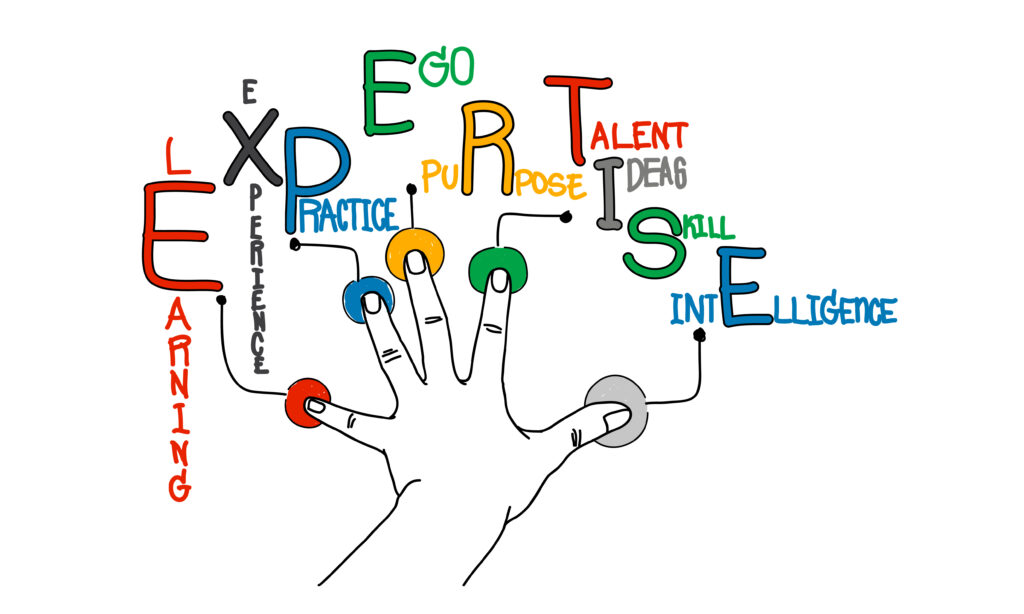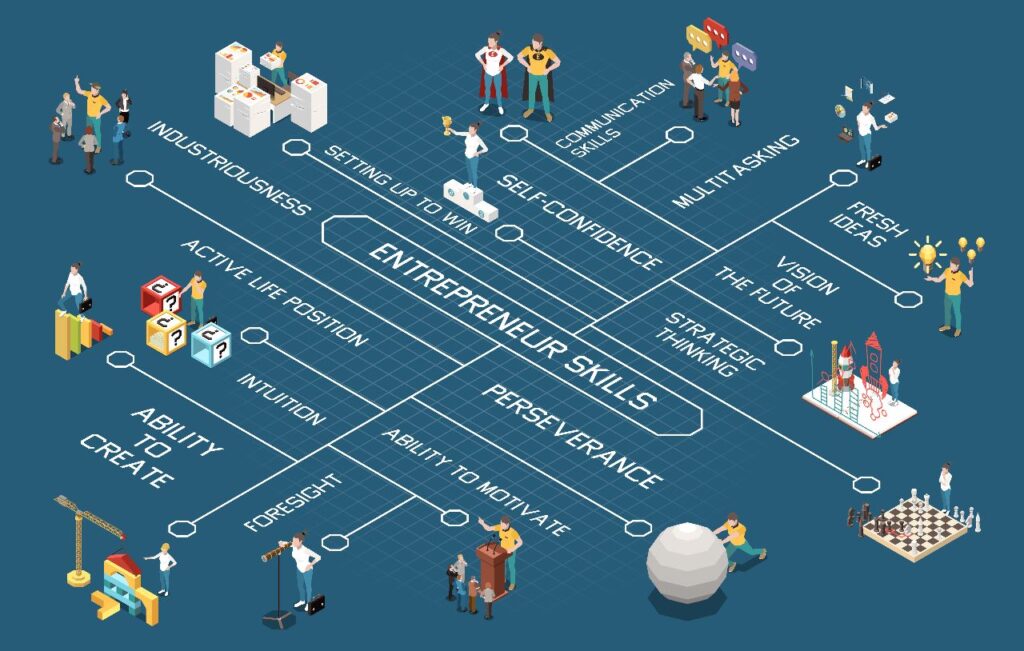
Introduction to softs kills for students
In 21st-century, hard skills, academic qualifications alone are no longer sufficient to ensure success. Employers and institutions are increasingly recognizing the value of soft skills for students’, which encompass a range of personal attributes and interpersonal abilities.
In 2021, Ethical Angel sponsored a One Poll survey – receiving responses from over 2000 CEOs and UK office workers to answer a range of questions on Soft Skills.
- Business leaders believe revenue could be increased by, on average, 17.5% if employees had better soft skills
- 92% of business leaders feel their company would be more productive if staff had better soft skills
- 88% of leaders agree that soft skills are directly related to business growth
- 66% of employees would like to improve their soft skills
- 46% of employees have experienced a conflict that could have been dealt with better soft skills
- 42% of employees would leave their company for another which promotes soft skill development
- 59% of employees don’t have a clear plan to improve their soft skills from HR, and 50% have had no help at all
- 41% of employees rate their manager communication skills as average to very poor”
- 79% of business leaders believe that middle managers lack the necessary soft skills to be effective in their role.
Soft skills play a crucial role in students’ personal and professional development, empowering them to navigate various challenges and excel in their chosen paths.
This article explores the significance of soft skills for students, providing an overview of essential soft skills and offering practical tips on how to develop and enhance them.
Hard skills VS Soft skills

Understanding Soft Skills
Soft skills refer to a set of non-technical skills that enable individuals to interact effectively with others and navigate various situations.
They encompass personal attributes such as communication, teamwork, adaptability, leadership, critical thinking, problem-solving, time management, and emotional intelligence.
Employers and educational institutions value soft skills as they contribute to creating well-rounded individuals who can thrive in diverse environments.
When it comes to career development and personal growth, there is often a debate about the relative importance of hard skills and soft skills.
Understanding Hard Skills
Hard skills are tangible and measurable abilities that are acquired through education, training, and experience. They are typically specific to a particular profession, industry, or job role.
Examples of hard skills include technical proficiency in programming, data analysis, graphic design, accounting, project management, and foreign language proficiency.
Hard skills are often emphasized in job descriptions and required qualifications, as they demonstrate the technical competence necessary to perform specific tasks.
The Synergy of Hard and Soft Skills

Rather than viewing hard and soft skills as competing entities, it is essential to recognize the synergy that exists between them.
Hard skills provide the foundation and technical expertise required to perform specific tasks, while soft skills facilitate the effective application and utilization of those skills in real-world scenarios.
As Hard skills refer to the technical expertise and knowledge specific to a particular job or industry, while soft skills encompass personal attributes and interpersonal abilities that enable individuals to work effectively with others.
Both hard and soft skills are vital for professional success, but finding the right balance between them is the key to unlocking one’s full potential.
In today’s competitive job market, employers increasingly value candidates who possess a balanced combination of both skill sets hence, rather than finding the differences between hard skills and soft skills, one needs to explore their individual significance and highlights the benefits of cultivating a harmonious blend of both.
Importance of soft skills for students

In today’s more cutthroat and linked world, soft skills are crucial for students to succeed. By developing and honing these skills, students enhance:
Enhanced Employability
A balanced blend of hard and soft skills makes individuals more marketable and versatile, opening up a wider range of career opportunities. Employers seek candidates who can contribute not only with technical expertise but also with strong interpersonal and problem-solving abilities.
Improved Collaboration
Soft skills foster effective teamwork, communication, and collaboration, enabling individuals to work harmoniously with colleagues from diverse backgrounds. Strong soft skills facilitate a better understanding, empathy, and conflict resolution within a team, leading to increased productivity and a positive work environment.
Adaptability in a Changing World
Soft skills such as adaptability, resilience, and critical thinking are crucial for navigating rapidly evolving industries and technologies. Professionals with strong soft skills can quickly adapt to new challenges, embrace change, and identify innovative solutions, positioning themselves for long-term success.
Leadership Development
Soft skills such as leadership, emotional intelligence, and effective communication are instrumental in driving teams and organizations towards success. The ability to inspire, motivate, and influence others is highly valued in leadership positions.
Continuous Growth and Learning
While hard skills may become outdated over time due to technological advancements, soft skills remain relevant and adaptable. Investing in the development of soft skills ensures that individuals can continue to learn, grow, and evolve throughout their careers.
Here is a list of essential soft skills for students

- Communication Skills: Clear verbal and written communication, active listening, and effective presentation skills.
- Teamwork and Collaboration: The ability to work well with others, contribute to a team effort, and demonstrate cooperation, compromise, and active participation.
- Adaptability and Flexibility: The capacity to adapt to new situations, embrace change, and adjust to different environments or circumstances.
- Leadership Skills: The ability to inspire and guide others, take initiative, delegate tasks, and motivate team members.
- Critical Thinking and Problem-Solving: The capacity to analyze situations, evaluate information, think critically, and generate innovative solutions to complex problems.
- Time Management and Organization: Efficiently managing time, prioritizing tasks, meeting deadlines, and maintaining a well-structured approach to work.
- Emotional Intelligence: The ability to recognize and manage one’s emotions, as well as demonstrate empathy, understanding, and effective conflict resolution.
- Creativity and Innovation: Thinking outside the box, generating new ideas, and finding creative approaches to challenges.
- Resilience and Perseverance: The ability to bounce back from setbacks, handle failure positively, and persist in the face of challenges.
- Self-Motivation and Initiative: Taking responsibility for one’s own learning, setting goals, and actively seeking opportunities for growth and development.
- Problem-Solving: Identifying issues, analyzing them, and implementing effective solutions.
- Decision-Making: Assessing options, considering consequences, and making informed decisions.
- Networking and Relationship Building: Building and maintaining professional relationships, networking, and leveraging connections for opportunities.
- Conflict Resolution: Effectively managing conflicts, finding mutually beneficial resolutions, and promoting a positive and inclusive work environment.
- Cultural Awareness and Diversity: Appreciating and respecting different cultures, backgrounds, and perspectives, and working collaboratively in diverse teams.
- Ethics and Integrity: Demonstrating honesty, ethical behavior, and acting with integrity in all situations.
- Initiative and Proactivity: Taking the initiative to go beyond assigned tasks, seeking opportunities for growth, and demonstrating a proactive attitude.
- Negotiation Skills: The ability to engage in constructive negotiations, find win-win solutions, and advocate for one’s interests.
- Presentation Skills: Effectively presenting ideas, engaging audiences, and delivering information in a clear and engaging manner.
- Professionalism: Demonstrating a professional demeanor, reliability, punctuality, and respect for others in academic and professional settings.
Remember that soft skills are not limited to this list, and there may be other skills specific to certain industries or career paths.
Developing these soft skills will help students excel academically, professionally, and personally, allowing them to navigate the complexities of the modern world with confidence and success.
11 Important soft skills for students to focus

Communication Skills
Effective communication is a cornerstone of success in any field. Students need to develop strong verbal and written communication skills to articulate their thoughts, express ideas clearly, and engage with others.
The numerous communication tools of today, including email, chat, video, and phones, must be taught to students. These skills are also very important in the 21st century.
Active listening, clarity, empathy, and non-verbal communication are key components of effective communication. Students can enhance their communication skills through practice, participating in group discussions, presenting in front of an audience, and seeking feedback to improve their delivery and clarity.
Teamwork and Collaboration
Collaboration and teamwork are essential in today’s world. Students who can work well with others and contribute to a team effort are highly sought after by employers.
Teamwork requires skills such as active participation, conflict resolution, compromise, and respect for diverse perspectives. Students can develop these skills by engaging in group projects, extracurricular activities, and volunteering opportunities.
These experiences provide invaluable lessons in working collaboratively, managing conflicts, and leveraging the strengths of team members.
Critical Thinking and Problem-Solving
Critical thinking and problem-solving skills enable students to analyze situations, evaluate information, and generate innovative solutions.
These skills are vital in addressing complex challenges and making informed decisions. Students can hone their critical thinking abilities by engaging in activities that encourage analysis, logical reasoning, and evaluation of multiple perspectives.
Encouraging students to ask questions, think critically about information presented to them, and engage in debates can significantly enhance their problem-solving skills.
Adaptability and Resilience
In a rapidly changing world, adaptability and resilience are invaluable soft skills. Students must be able to embrace change, adapt to new environments, and bounce back from setbacks.
Encouraging students to step out of their comfort zones, take on new challenges, and learn from failures can foster resilience and adaptability.
By developing a growth mindset and focusing on learning and improvement rather than perfection, students can build resilience and thrive in the face of adversity.
Emotional Intelligence
Emotional intelligence encompasses the ability to recognize and manage one’s emotions and empathize with others. Students with high emotional intelligence can build positive relationships, manage conflicts effectively, and demonstrate empathy and understanding towards others.
Encouraging self-reflection, practicing active empathy, and promoting a supportive and inclusive environment can help students develop emotional intelligence.
Self-awareness and Assessment
Encourage students to assess their current soft skills and identify areas for improvement. Self-reflection and self-awareness are crucial for understanding strengths and areas that require development.
Collaboration and Teamwork
Involve students in group projects, team activities, and extracurricular clubs or organizations. These experiences foster collaboration, teach them how to work in teams, and provide opportunities to develop skills like active participation, conflict resolution, and compromise.
Time Management and Organization
Students should develop effective time management and organizational skills. Teach them strategies for setting goals, prioritizing tasks, managing deadlines, and maintaining a balanced schedule. Encourage them to break larger projects into manageable steps and create timelines for completion.
Continuous Learning
Emphasize the importance of lifelong learning and encourage students to pursue personal and professional development opportunities. Encourage reading, attending workshops, participating in seminars, and engaging in online courses or certifications that help them expand their knowledge and skills.
Role Models and Mentors
Connect students with mentors or professionals in their areas of interest. Mentors can provide guidance, support, and real-life examples of how soft skills are applied in the professional world. Encourage students to observe and learn from positive role models who exemplify strong soft skills.
Practice and Reflection
Encourage students to practice their soft skills in various contexts. Provide platforms for them to apply their communication, teamwork, critical thinking, and other soft skills through presentations, group projects, debates, and community engagement. Encourage reflection on their experiences to identify areas for improvement and celebrate their progress.
Conclusion on soft skills for students
The significance of soft skills for students cannot be overstated. While academic knowledge and technical expertise are crucial, it is the development and mastery of soft skills that truly equip students for success in their academic pursuits, future careers, and personal lives.
Soft skills enable students to navigate the complexities of the modern world, where collaboration, critical thinking, and emotional intelligence are highly valued.
By cultivating and enhancing soft skills, students gain a competitive edge in the job market. Employers today are increasingly seeking candidates who possess a well-rounded skill set that goes beyond technical qualifications.
Soft skills such as effective communication, teamwork, and adaptability are essential for thriving in diverse work environments and contributing positively to organizational success.
Furthermore, soft skills play a vital role in personal growth and development. They empower students to build strong relationships, manage conflicts, and understand diverse perspectives.
Skills like empathy, emotional intelligence, and resilience contribute to the overall well-being and fulfillment of students, allowing them to navigate challenges, setbacks, and changes with grace and confidence.
Developing soft skills is an ongoing journey that requires self-reflection, practice, and a willingness to learn and grow. It is not enough to merely possess technical expertise; students must actively engage in activities and experiences that allow them to refine their soft skills.
Educational institutions have a critical role to play in fostering the development of soft skills among students. By incorporating soft skill development into the curriculum, creating an inclusive and supportive learning environment, and providing opportunities for experiential learning, institutions can help students build a strong foundation of soft skills that will serve them throughout their lives.
Teachers and mentors also play a crucial role in guiding and mentoring students in their soft skill development journey. By providing constructive feedback, encouraging self-reflection, and serving as positive role models, educators can inspire students to strive for continuous improvement and excellence in their soft skill development.
Ultimately, the development of soft skills is not just a means to an end; it is a lifelong journey of personal growth and continuous learning.
As students embrace the cultivation of soft skills, they embark on a path toward self-discovery, resilience, and success in both their professional and personal lives.
Want to know more about author click here